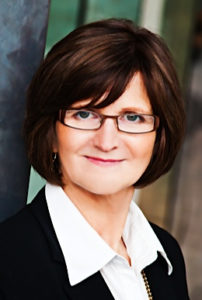I discovered MaryLou Wakefield through my Scoop.it curation of organizational storytelling and was later delighted to find her in attendance at the recent Reinvention Summit 2, where she contributed enormously to the conversation with insightful comments and questions. The Q&A, 98th in a series, will run over the next several days.
Bio: [in her own words] My professional experience is in communications,  marketing and public relations. I’ve worked in health care, the arts, tourism, post-secondary education, ad agencies and for many small businesses. I created and develop content for a blog about storytelling at STOrythatMatters. I’m working on a new blog about my husband’s second solo circumnavigation attempt. I’m working (with my husband) on a book, and I’m hoping to get some interest in a documentary. I’m especially interested in helping organizations discover, develop, and share their stories.
marketing and public relations. I’ve worked in health care, the arts, tourism, post-secondary education, ad agencies and for many small businesses. I created and develop content for a blog about storytelling at STOrythatMatters. I’m working on a new blog about my husband’s second solo circumnavigation attempt. I’m working (with my husband) on a book, and I’m hoping to get some interest in a documentary. I’m especially interested in helping organizations discover, develop, and share their stories.
Q&A with MaryLou Wakefield, Question 1:
Q: How did you initially become involved with story/storytelling/ narrative? What attracted you to this field? What do you love about it?
A: I grew up with stories. They were the soundtrack of my childhood. My mom and I listened to stories on CBC radio and on weekend jaunts with my Dad to a farming area outside Vancouver called Lulu Island where we went for fresh fruit and vegetables, I listened to him tell fantastic stories — about growing up in a family of 10 kids, about being in London during the war, and about some of the immigrants who worked in his watch-repair business. In the late 60s, I was utterly transported by the stories of folk and rock and roll music. These were stories that made me feel connected to something bigger, and important. And since then, these stories have become part of my own story.
What attracts me to story and intrigues me, is its power to evoke emotion, first and foremost. I’m very interested in how the form and structure of story seems to plant an idea in our consciousness and take hold. In that way, story seems to “stick,” is more indelible and easier to remember, which adds to its power. I’ve always felt that stories have the power to connect people in profound ways — to a common experience or idea. Perhaps that connection is made because our emotions are fully engaged and able to process information in a different way. More recently, I’ve come to know, through telling my own story, that the act of sharing a story has tremendous power for both the storyteller and the listener. It’s in the telling of the story, orally or in one of the many ways we have available to us in the digital space, that is also transformative. (More on that later). Lastly, I love that storytelling is grounded and deeply rooted in our collective past; it’s not the latest shiny thing or flavor of the month. Having worked across the communications spectrum for many years and having seen trends come and go, storytelling feels right to me, like I’m coming back to myself. In that way it feels very natural and comfortable to be part of the art and craft of storytelling.
What I love about storytelling is its infinite capacity to teach us things we sometimes don’t even realize we’re learning until much later and upon reflection. In 1997-98, I spent a year sailing across the South Pacific with my husband and our two daughters who were 9 and 11 at the time. We sailed into some of the South Pacific’s most storied bays — Cook’s Bay in Moorea, the lagoon in Bora Bora, the Island of Niue, and Neiafu in Tonga. After 4 months, we arrived in the Bay of Islands in New Zealand and from there went to Australia and South Africa. It was a year like no other.
We made fast friends with people from all over the world and, even though we were strangers at first, we shared a common understanding of what it took to step out of our everyday lives and take a leap into the world of offshore sailing. Naturally, we shared our stories. I remember sitting in a cafe in Tonga with a fellow sailor, a charming, French woman who, like me, was on the adventure of a lifetime. I’d heard she’d fallen overboard while she and her family were under sail and I wanted to hear her tell that story. I was curious about how she reacted and what she thought about while she “watched her whole life slowly sail away” as she put it. I wanted to know how the experience changed her and how it changed her family. It was an amazing story, and full of surprises. On the surface, I learned that appearances are almost always deceiving and that petite, elegant, French women can be every bit as resilient and courageous as anyone I’ve ever met. On a deeper level, her story taught me this about survival. It’s difficult for someone else to rescue you. Always keep your wits about you. Keep your head above water. Treading water won’t get you where you need to go. When you lose touch with what’s most important to you, swim like hell towards it.
